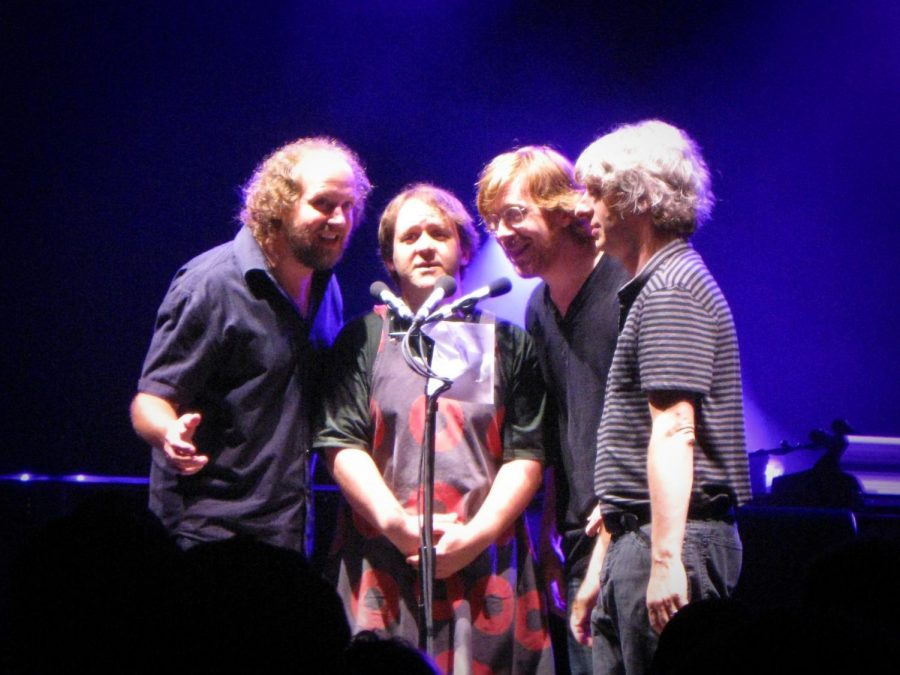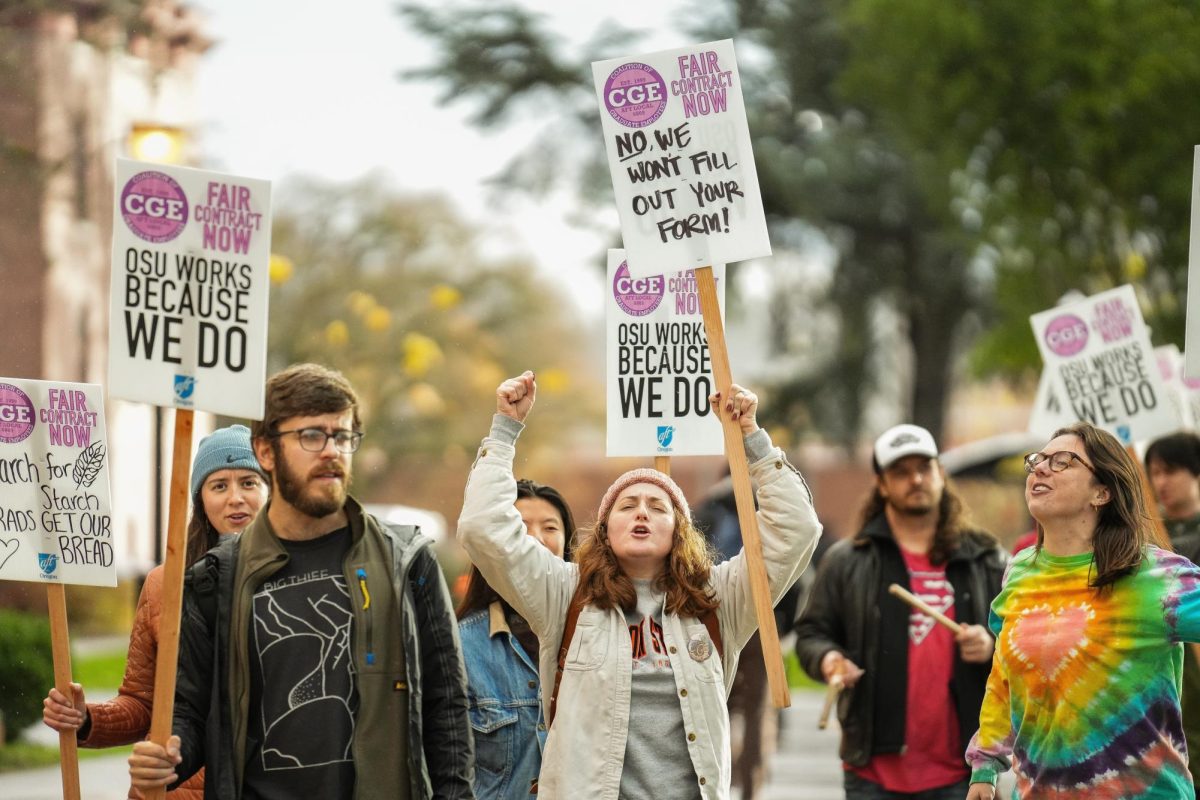Imagine you are a fisheries biologist about to attend an academic conference.
You enter a room neatly divided by tables and join the flow of feet mindlessly trickling past posters stuffed with blocks of text and inscrutable figures.
Then, something catches your eye: a brightly colored band T-shirt.
Looking around the room, you become aware of your cotton work shirt, blue jeans and REI sneakers; everyone else is paying an homage to the ‘80s, in corduroys, Chuck Taylor’s and T-shirts printed with the name of a band born at the University of Vermont in 1984: “Phish.”
This fever-dream can become reality at the second Phish Studies Conference hosted by Oregon State University in partnership with The Mockingbird Foundation at the LaSells Stewart Center from May 17-19.
According to Conference Chair Stephanie Jenkins, a full-ride scholarship to cover registration will be available to a small number of students on a first-come basis. To apply for the scholarship, visit phishstudies.net and register with the code PhishStudent.
To all others, the event is open to the public with a registration fee of $195.
As an associate professor in the School of History, Philosophy and Religion, Jenkins has been teaching a 300 level class on Phish studies for the past 10 years.
Jenkins said that teaching this class introduced her to a group of academics for whom research and Phish overlapped. In 2019, they held the world’s first Phish Studies Conference at OSU, drawing hundreds of fans and about 50 presenters.
This year there will be an art exhibit on waves of every variety, a “Phishsonian Museum” and nightly live music performances by Oregon bands at Bomb’s Away Cafe.
The idea to combine her love for Phish with philosophy came to Jenkins in graduate school when she heard a rumor that a professor had devoted his philosophical research to the band R.E.M.
“Then I started looking into it and there were other scholars who were doing research … on popular music,” Jenkins said.
She said that the band’s diverse music offers something to everyone and the conference program advertises everything from exploring the effects of Phish music on female cancer patients to a panel of researchers who strive to quantify Phish and their many Phans.
According to Jenkins, the diversity of Phish is what makes Phish appealing. The band does not adhere to a pre-planned setlist. In fact, Jenkins said, the band never even plays the same version of a song twice.
Jenkins attended her first Phish concert on Feb. 24, 2003. Since then she has been to many concerts, which she doesn’t keep count of, each one leaving her wanting more.
“When you walk onto that concert floor that night, it’s that thrill of the unexpected that gets Phish fans going to the show… being able to participate in the uniqueness of the moment of each show because it will never happen again,” Jenkins said.


















































































































